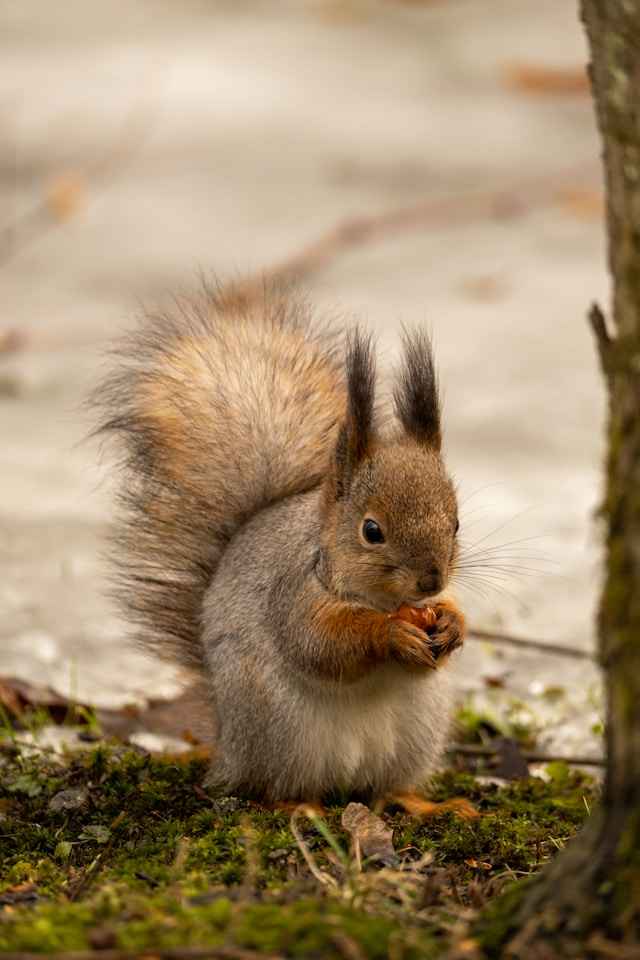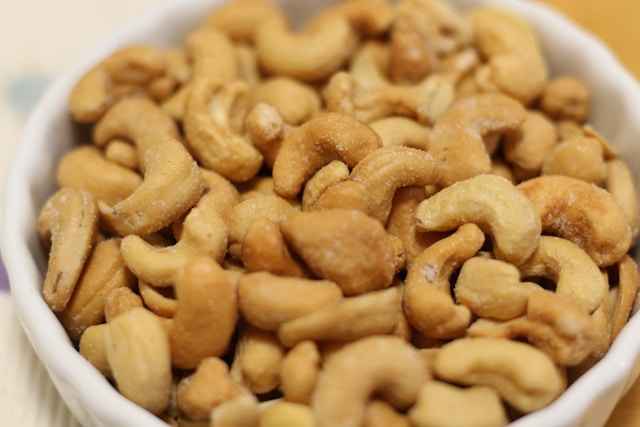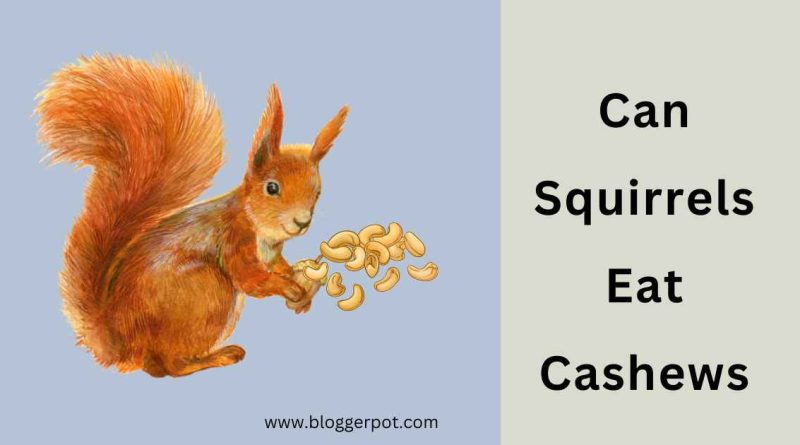Can Squirrels Eat Cashews
Squirrels love to eat many kinds of nuts. Some nuts are particularly beneficial for squirrels’ health because they contain numerous healthy nutrients. Many people wonder, can squirrels eat cashews? More importantly, are they safe for them?
Squirrels like to eat cashews. Cashews contain many vital minerals such as magnesium, phosphorus, zinc, and iron. These minerals are beneficial for squirrel health when consumed in moderate quantities. Cashews also provide protein and fats, both of which are essential for their well-being.
In this article, we will discuss the benefits and disadvantages of cashews on squirrel health and will attempt to cover all aspects of this topic.
Can Squirrels Eat Cashews?
Squirrels enjoy eating cashews and consuming them in moderation. One or two of these can be best for their health. However, cashews contain unhealthy chemicals like urushiol, which is harmful to squirrels. Cashews have phosphorus, which is not beneficial for squirrel health because excess phosphorus can lead to calcium loss.
Unsalted and raw cashews can be beneficial for their health. It is always advisable to provide squirrels with unsalted cashews. Additionally, keep in mind that an excessive amount may lead to health issues and obesity in squirrels.
Dietary Requirements for Squirrels
Squirrels need different kinds of food to stay healthy, such as:
- Protein helps them grow and repair their bodies
- Fat gives them energy and keeps them warm
- Vitamins protect them from diseases and help them use other foods
- Calcium makes their bones and teeth strong
- Carbohydrates give them quick energy
- Fiber helps them digest other foods
Feeding pet squirrels 50 calories of food daily is a suitable diet. This food should not contain a lot of sugar, as it is unhealthy for squirrels. It is always best to provide natural foods such as nuts, fruits, and vegetables, which are beneficial for the health of squirrels.

photo by Unspalsh
Squirrels Love Cashews, But How Much Is Too Much?
Squirrels live in the wild and consume natural foods they find, such as nuts, fruits, and vegetables. They are particularly fond of cashews, but it’s important for them not to consume too many. Cashews contain a high amount of fat, and excessive fat can be detrimental to a squirrel’s health.
Squirrels prefer eating ripe cashews and those without shells, as the shells are very hard and difficult to digest. While they can also eat raw cashews, ripe ones are preferable. It is beneficial for squirrels to eat cashews in moderation, such as one or two. Consuming more than this amount can lead to health issues for squirrels.
Do Squirrels Like Cashew Nuts?
Squirrels eat almost anything, even cashews. They do not know which foods can be harmful to them. Just because they eat cashew nuts does not mean that this food is good for them or that it is their favorite.
Cashews: A Winter Snack for Squirrels
Squirrels need to keep themselves warm in winter, so they must eat foods that contain fats and proteins. Cashews are one of those foods, rich in both protein and fat, making them good for squirrels to stay warm during the winter.
In addition to cashews, squirrels also consume berries, fruits, acorns, and other plants in the winter. Although cashews are high in fats and proteins, consuming them in excessive amounts can make squirrels sick due to their fat content. Therefore, it is best for their health to eat cashews in moderate amounts.
The Health Effects of Cashews on Squirrels
Squirrels enjoy eating cashews because they contain fats and protein, which help keep them warm during winter. However, it is advisable for squirrels to consume cashews in moderation, as an excessive amount can lead to health issues due to the high-fat content.
Cashews also have a high amount of phosphorus, which can result in calcium loss. Therefore, it is beneficial for squirrels to eat a small number of cashews, such as one or two per day, to maintain their health. An excess amount can cause health issues for squirrels.
Cashews are High in Fat
Cashews are a fatty food, so squirrels should only eat them sparingly. Cashews have a lot of fat. One oz of cashews has 12 grams of fat. Squirrels eat between 1.5 and 3 oz of food every day. Normal food for squirrels or rodents has only 2.7 grams of fat in 3 oz of food. This is because too much fat makes them very fat, which is bad for their health.
Calcium Loss By Cashews
For good health, squirrels require calcium. Cashews contain an excessive amount of phosphorus. When squirrels consume cashews, they lose calcium from their bodies due to this phosphorus.
A deficiency of calcium in squirrels can lead to a condition known as Metabolic Bone Disease (MBD). This disease is caused by the presence of excess phosphorus and a lack of calcium in the squirrel’s body. This disease can also be fatal.
Do Cashews Have Calcium?
Cashews contain a modest amount of calcium among other beneficial nutrients.
The following is the nutritional content found in 1 ounce (approximately 17-18 whole cashews) of raw cashews:
Calcium: 10mg
Fiber: 0.9 grams
Calories: 157
Iron: 1.89 milligrams
Potassium: 187 milligrams
Sodium: 3mg
Protein: 5.17 grams
Fat: 12.43 grams

photo by Unspalsh
Can I Feed Cashews To Squirrels?
It’s not advisable to feed cashews to squirrels, as they contain high levels of phosphorus, which can weaken their bones and deposit calcium in areas that are harmful, such as the lungs, eyes, and blood vessels.
Despite this, some individuals still choose to feed cashews to both domesticated and wild squirrels. If you decide to do so, limit the amount to 1-2 cashews per month to avoid health issues for the squirrels.
Why You Should Avoid Feeding Cashews to a Squirrel
Squirrels mostly live freely in the wild and are very active, but they become less active in captivity. If you feed them tasty cashews, they may become obese because cashews are high in fat. That’s why you should moderate squirrel’s cashew intake.
Squirrel Snacks: Alternatives to Cashews
Here’s a friendly guide to feeding your little squirrel buddy, without cashews:
Rodent Blocks: These are great for baby squirrels learning to eat their own. They’re packed with nutrients.
Calcium-Rich Veggies: Each day, hand out 5-7 tiny bits of veggies like arugula or squash. They’re super for strong bones.
Other Veggies: Also, 2-3 pieces of veggies like asparagus or broccoli will make your squirrel’s day.
Wild Treats: Got Magnolia pines or roses? Offer as much as your furry friend wants. Just check they’re chemical-free.
Protein Bites: Daily, 2 little critters like mealworms or a slice of hard-boiled egg will do.
Fruity Bits: A couple of pieces of fruit like strawberries are perfect for a sweet treat.
Nuts & Seeds: Two types are good each day, but skip the cashews.
Chewables: Don’t forget to pack a durable chewing item, like a stick, to keep teeth in pristine shape.
It is a simple and fun way to keep your squirrel happy and healthy.
Nuts That Are Safe for Squirrels
Squirrels enjoy consuming a variety of nuts. While some are beneficial for their health, others can be extremely harmful. Below is a list of nuts that squirrels are fond of eating
- Acorns
- Hazelnuts
- Peanuts
- Pistachios
- English Walnuts
Conclusion
Can squirrels eat cashews? The answer is no, Squirrels should not consume cashews as they can be harmful to their health, affecting both wild and domesticated squirrels. It’s better to provide them with alternative nuts that are beneficial and safe for their consumption.
Read more
FAQs
Do squirrels like cashews?
While squirrels may find cashews tasty, they’re not the best choice for their diet. The high fat and phosphorus content in cashews can disrupt their calcium balance, potentially causing health complications.
Why should squirrels not eat cashews?
Cashews contain urushiol, a compound that may cause a severe allergic response in squirrels hence, it’s best for them to avoid eating them.

